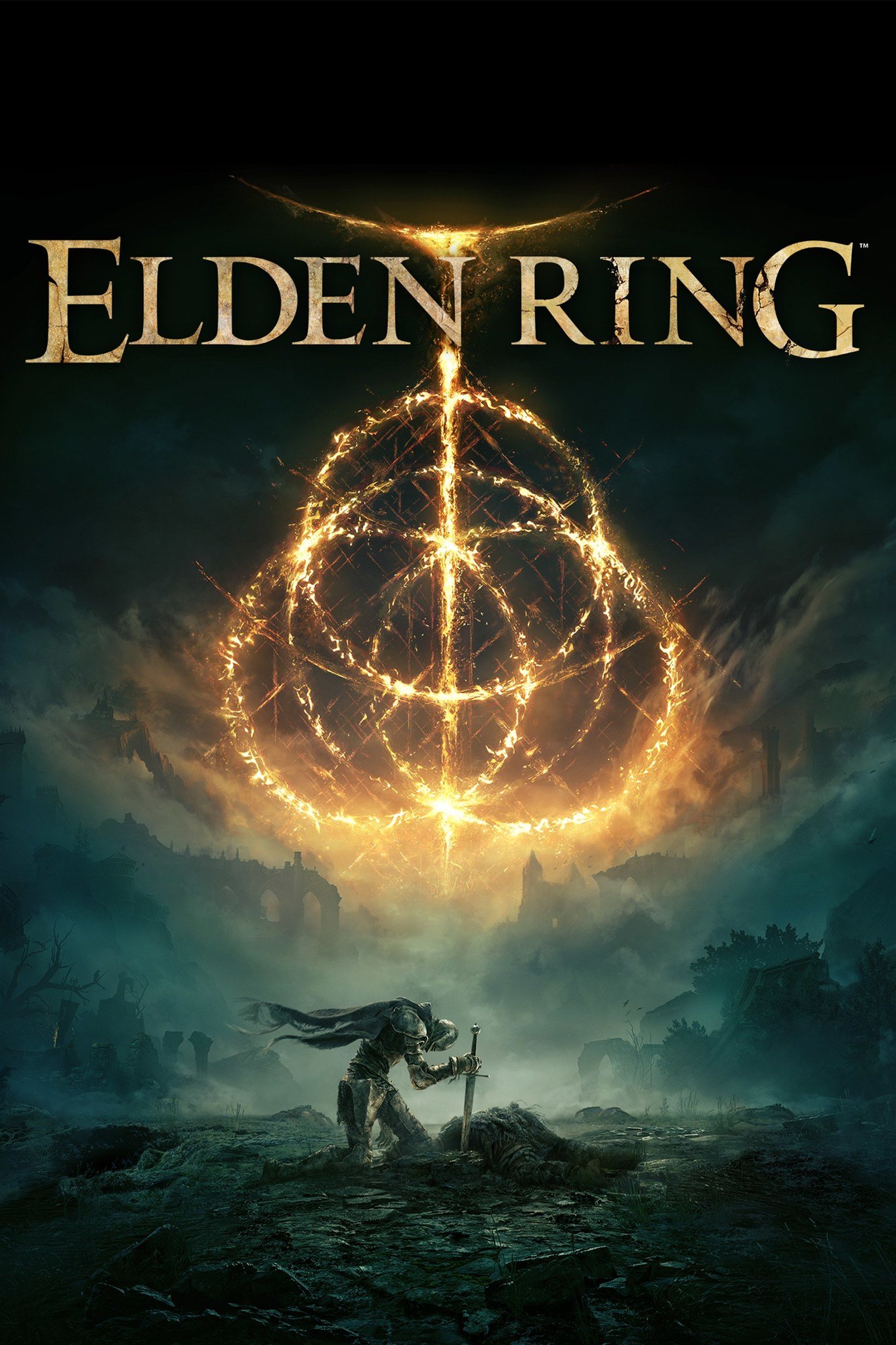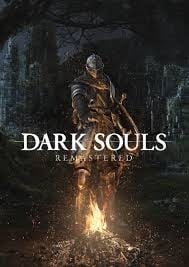Elden Ring for 'Souls' newcomers: How to approach Souls games for absolute beginners
Elden Ring is an absolute masterpiece, but it's also quite difficult.
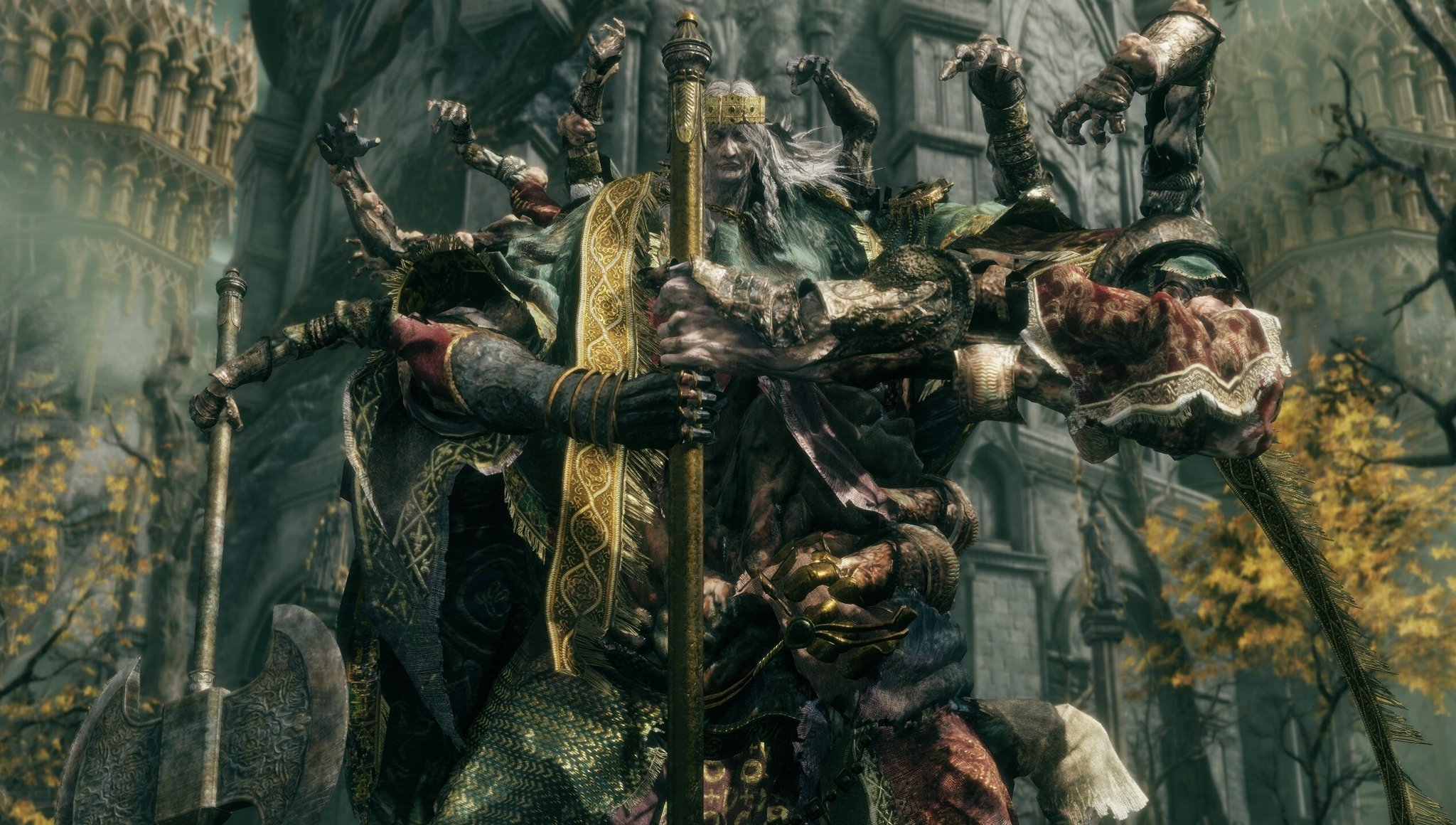
All the latest news, reviews, and guides for Windows and Xbox diehards.
You are now subscribed
Your newsletter sign-up was successful
In years past, I looked upon games like Bloodborne and Dark Souls and thought, "Wow, those games look amazing," but every time I had attempted to get into Dark Souls, my perception of its difficulty curve forced me to drop it multiple times.
Knowing full well Elden Ring was likely going to end up as one of the best Xbox games of all time, a few months ago, I steeled myself and decided I'd give Dark Souls one more chance to see whether I could finally cut through its opaque formula. And finally, after almost a decade of trying to get into it, I've finally completed Dark Souls: Remastered as of a few weeks ago.
Dark Souls Remastered, I would argue, was a far easier experience for me than the 50 hours I've put into Elden Ring so far, but a major contributor to that was the lack of guides online. Dark Souls naturally has mountains of guides and tips videos to help newcomers who get stuck, and for me, Elden Ring was the first time I went in completely ignorant of what to expect. My experience with Dark Souls and what it expects of you, however, helped me a huge amount to finally get over Elden Ring's difficulty curve.
So, I thought for newcomers to Souls games, and those who are seeing the epic Elden Ring reviews and feeling like they're going to miss out due to the game's "difficulty," I'm here to offer some spoiler-free tips to you, and how you can get involved should you want to try.
How to embrace failure and study
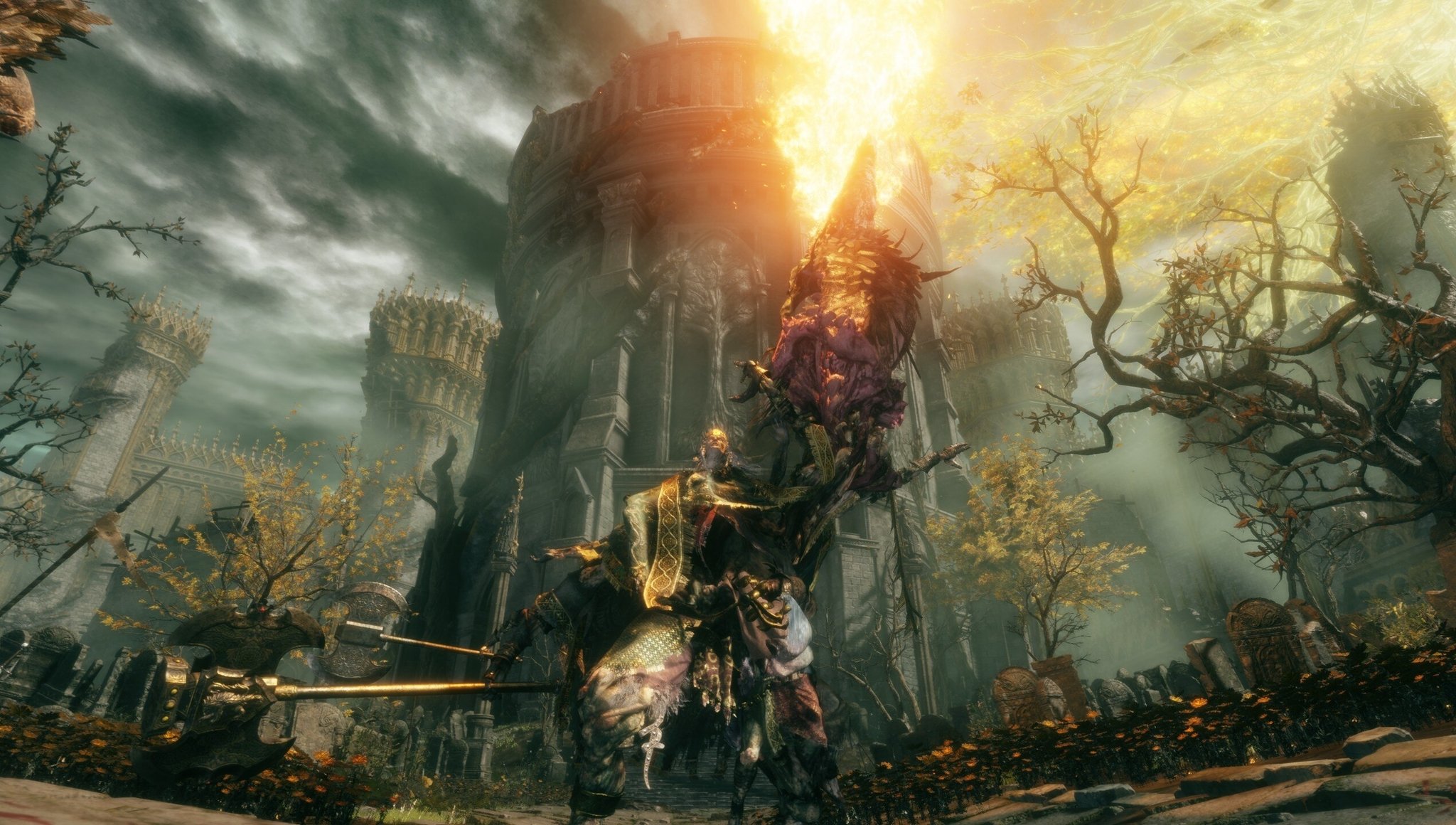
We often associate death with failure in most modern games, with little to no consequences in many of today's titles. You may be sent back to a checkpoint, ready to go again, and your cause of death will more than likely be a very easily rectified mistake or lapse in attention. Souls games treat death a little differently, in such a way that alienates people who have gotten used to regular action games we're typically used to seeing from major AAA Western publishers.
From every death you gained knowledge and practice — you didn't fail.
You almost need to approach Elden Ring and other FromSoft games like a bit of a puzzle, or even a hobby. And sure, you may not have time to invest in a game like this, but I honestly feel a parallel between Elden Ring and the classic World of Warcraft experience, for example. WoW demanded players very finely choreograph every boss battle, while studying in-depth how to maximize their class experience. Because WoW is an MMO, though, nobody really complained about that type of gameplay. We're used to games like Elden Ring and Dark Souls demanding little of players, as titles that are meant to be experienced only, much like a movie. There are people who make these types of games look easy, but I am certainly not one of them. I struggled for 10 years to get into Dark Souls, but once I finally changed my mentality around failure, I discovered one of the most wonderful and elevating experiences I've had in gaming. Elden Ring is no different.
Elden Ring's boss battles can be utterly brutal, but the game gives you a lot of tools to tackle them. The mentality of death in Elden Ring and other Souls games is understanding why you died. What attack was it that killed you? And what could you do to prevent it or avoid it? Every time you make a mental note of what ability you need to look out for, your mind builds a mental map of each angle of attack, almost like peeling the layers of a puzzle.
All the latest news, reviews, and guides for Windows and Xbox diehards.
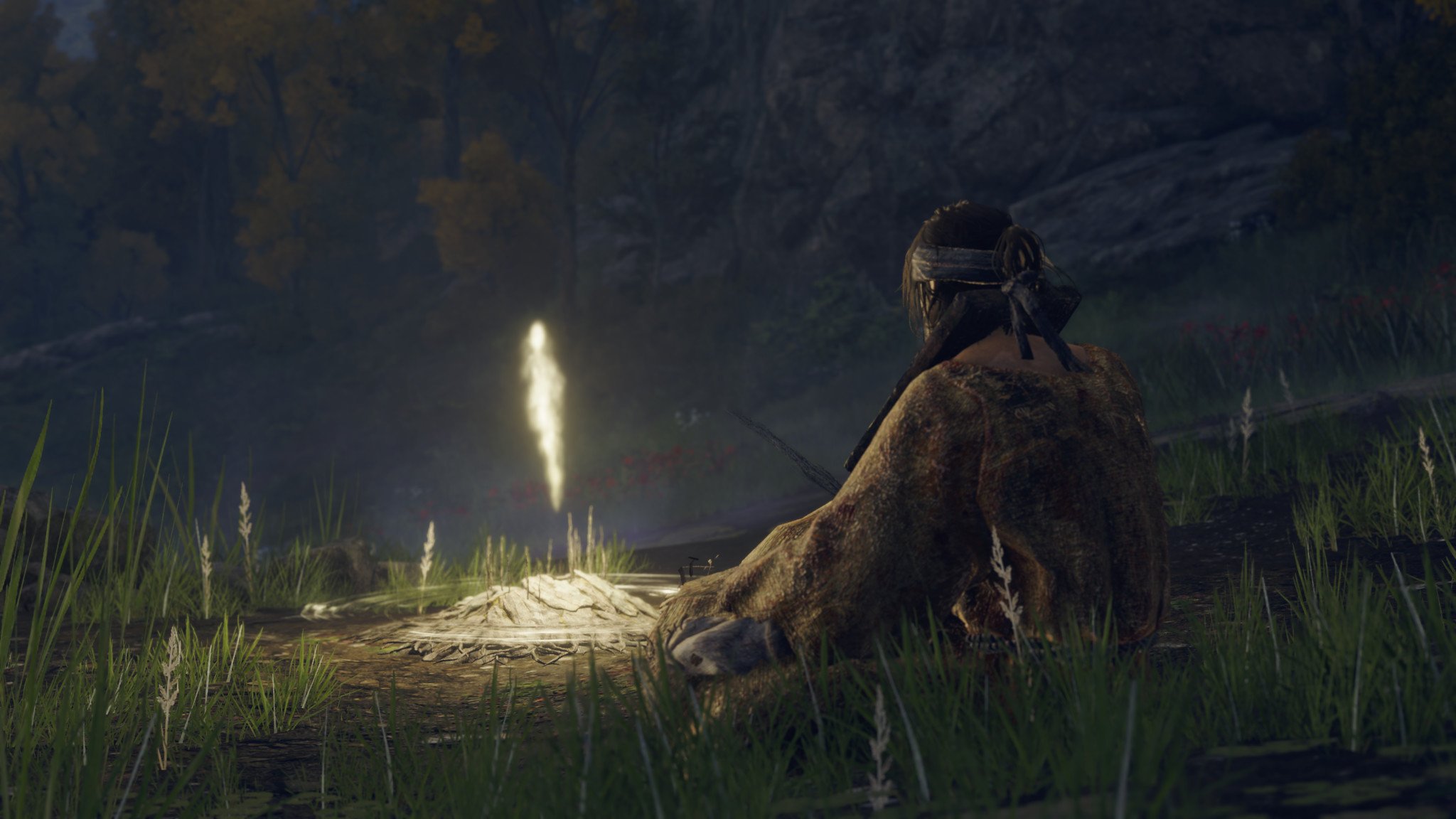
Most side-bosses in Elden Ring are relatively simple, with only a few attack patterns and AI reactions to look out for. More epic battles will put a bigger demand on the player to study and adapt a bigger variety of attacks. The vast majority of what Elden Ring throws at you becomes predictable once you've endured a few sessions of trial and error. It's rare that a boss does something out of the blue, or changes its behavior on a whim. From every death you gained knowledge and practice — you didn't fail.
There are some optional bosses that put a heavier demand on reaction speed and timing, but the vast majority of the game's regular enemies and standard bosses do not expect anything more of players than a standard popular multiplayer shooter might. Elden Ring also offers mountains of tools and equipment that can help you adapt and mitigate various situations.
Picking the right tools for the job
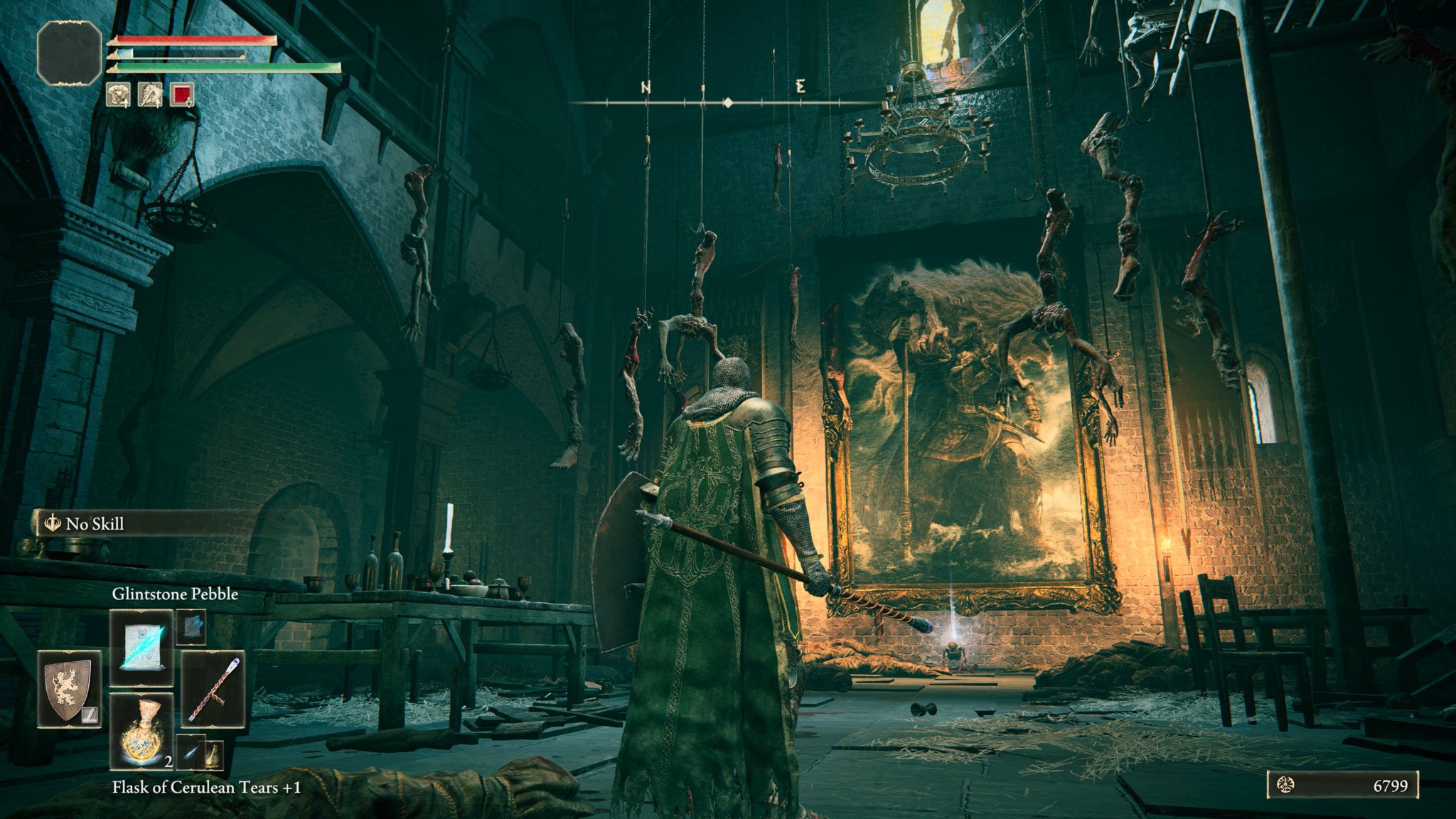
Elden Ring, like other FromSoft Souls games, has a mountain of weapons, gadgets, and other items to help you overcome its challenges. I was able to get through most of Dark Souls: Remastered without using any consumables besides my Estus Flask to replenish health, but the variety of Elden Ring's bosses means that there may well be situations where your character build isn't ideal for the task at hand.
For example, I'm playing an Astrologer right now, who uses sorcery and Glintstone magic primarily. I had attempted to emulate my character from Dark Souls: Remastered, but in the second area, I found a legion of enemies that were designed almost entirely around countering sorcery. A bit of a nightmare scenario for my character; however, I was able to very quickly adapt to the situation, by opting for other plans of attack.
I used magic a bit less in this area, and instead opted for my sword and shield to do much of the combat. In typical situations, my magic deals more damage, but for this area, I had to concede that melee combat was far more optimal. Through Elden Ring's various cookbooks, I've found items that can boost your resistance to different types of damage too, such as the boiled prawn, which can increase your physical damage negation. Being able to take a couple of extra hits may seem trivial, but in a game like this, it can be the difference between life and death.
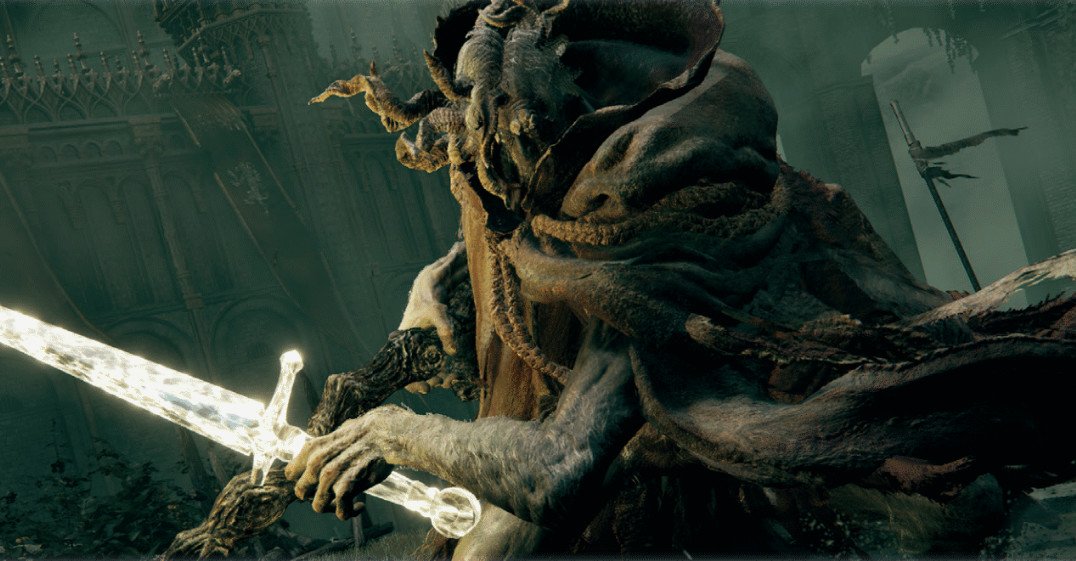
As such, I feel Elden Ring is almost more of a hobby than a typical game you simply play. And sure, there's nothing wrong with not wanting to see a specific game as a full-blown hobby, but we often unwittingly treat games like Halo Infinite, Fortnite, and Call of Duty as a hobby, playing them repeatedly and trying to hone our skills repeatedly against other players. Elden Ring is no different, in a way.
Analyzing the situation at hand and adapting your mindset is something most modern singleplayer games don't ask of us in any serious way. These are the kinds of things you typically do in MMOs, or even tabletop games like Dungeons & Dragons. We accept this type of gameplay in those games, but we see it less in open-world action games. If you find that you've hit a wall, or find yourself tired of learning a particular boss, it might be a good idea to go off and explore some side-content for a bit. You may find items that can aid you in the next phase of the story, or a major boss event in the local area.
I feel Elden Ring is almost more of a hobby than a typical game you simply play.
I had to break off the main story for a while, due to mistakes I'd made building my character. Once I hit the first dungeon, I realized that I didn't have enough FP (mana for spells), to deal enough damage to the boss. I dumped all of my early points into Intellect, because I figured more Int meant more damage. However, in Elden Ring, a huge emphasis is placed on the quality of your weapon, with regards to your damage output. These items are naturally gated by your progress through the story, so I'd wasted a ton of stats early on. I was able to correct my build a bit later on, but I made the first major dungeon incredibly difficult for myself needlessly.
Was this a dead end for my character, with no hope of resolution? Thankfully, no, since Elden Ring provides mountains of tools to approach combat in other ways. I'd save my FP spells for more crucial battles between replenishing Sites of Grace, and instead, went out into the world and farmed ingredients to create dozens of throwing poison spikes to deal with lesser enemies. This method ensured I had enough FP to deal with bigger challenges later, and was another example of how Elden Ring does provide creative play opportunities for analyzing and overcoming the game's various challenges.
How to approach combat in Elden Ring
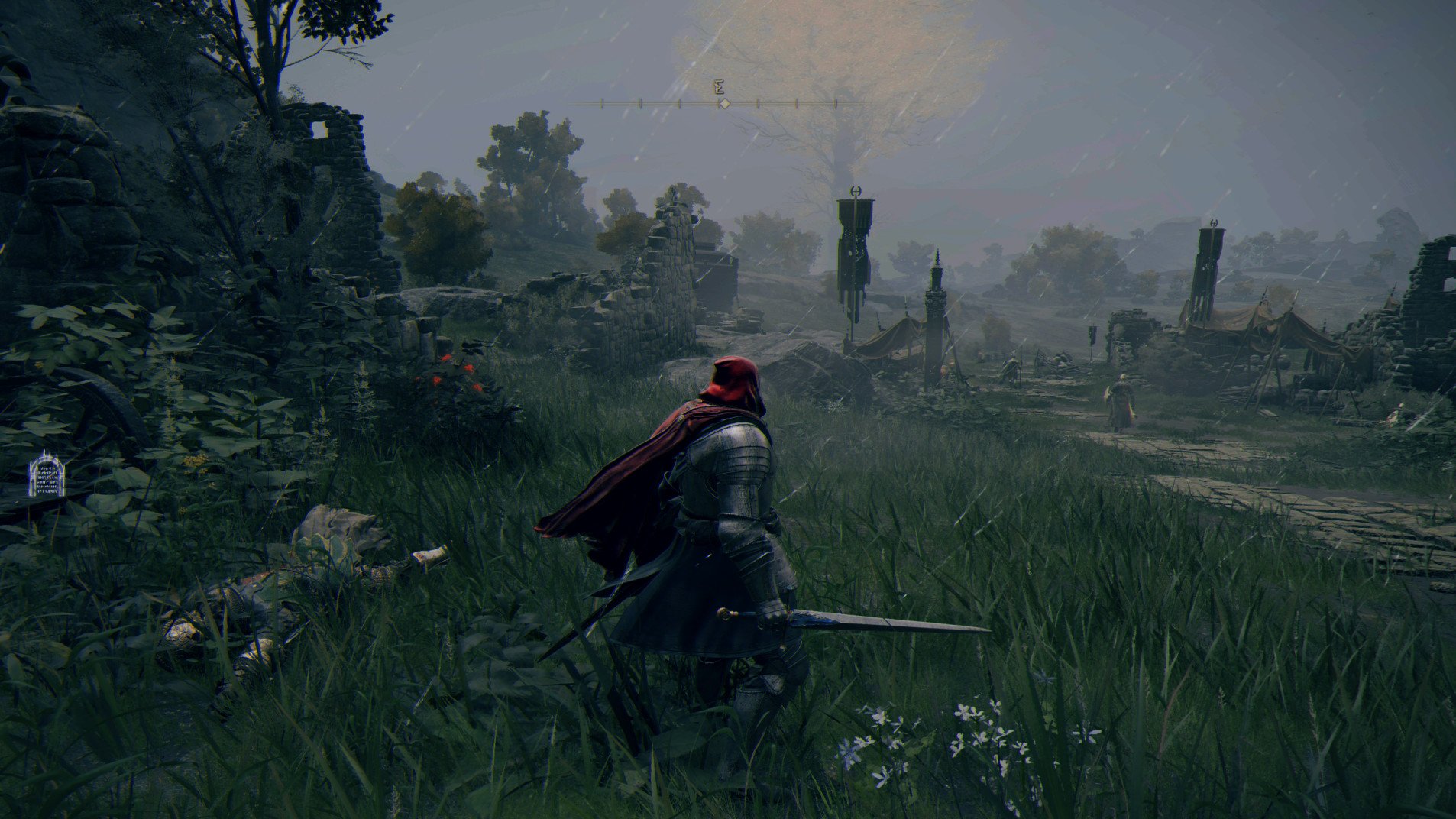
Beyond the tools for dealing with standard enemies, the headline act of Elden Ring really is the boss battles. As I mentioned, they should be approached more like puzzles, where you analyze each attack and plan out your reactions in kind.
I played much of Elden Ring initially from range, using spells from a distance. But the second area forced me to get to grips with the game's melee combat too, which is complex and deep. The game's tutorial explains some aspects of it, but doesn't go quite far enough to explain the relationship between some of the mechanics and different enemies and bosses. I've written a bigger guide to melee combat in Elden Ring over here, and you should definitely take a look.
As I mentioned, Elden Ring's combat should be approached in more of a puzzler-type context. As we progress further into the game's life cycle, Souls veterans will no doubt start sharing videos on how best to defeat different bosses. If you want to attempt to unpick them yourself first, I honestly think it's worth keeping a OneNote page open, or even a real life physical notebook (crazy, I know). Remember how video game manuals used to have a section for notes in the back of them? If not, perhaps I just revealed how elden I am. Alas, it's something worth considering for Elden Ring.
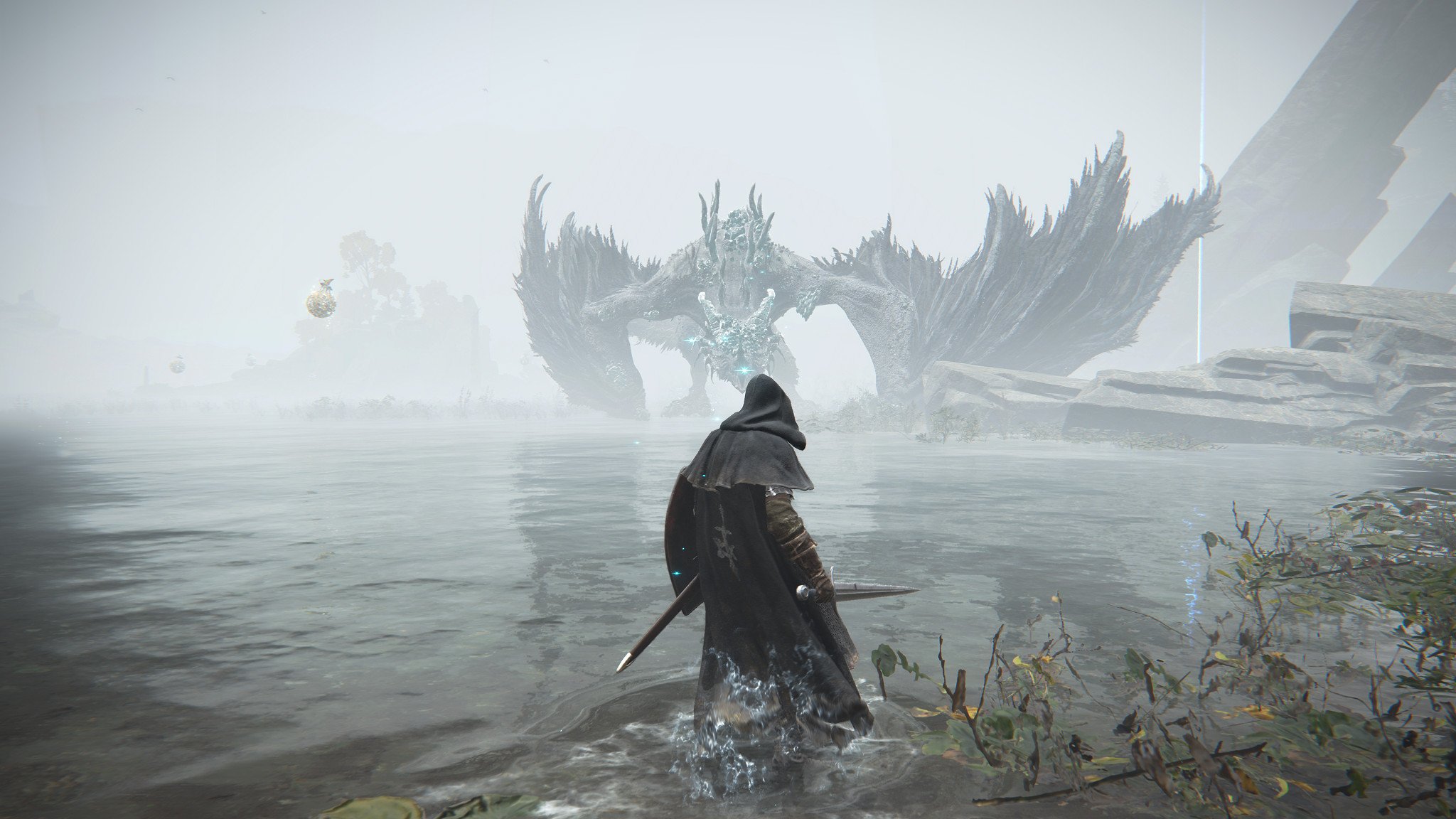
You can almost think of bosses in Elden Ring as player classes too. Some of them wield large two-handed weapons, while others use smaller, one-handed weapons. Some might use magic attacks. Others may even use a combination. And yes, some of the bigger setpiece bosses will have very unique mechanics that will need to be learned, many of them can simply be approached as a bigger, deadlier version of any other regular mob. They are often governed by many of the same restrictions your character is, including stamina, stance defense, and the like. Just like your character, well-timed heavy attacks to many bosses will eventually break their stance, allowing you to land a critical hit. Others may simply be too damn beefy to stance break them easily, unless you're wielding particularly heavy weapons for the job.
Indeed, you should read my Elden Ring melee combat guide for more detail on this, but as a rule of thumb, if an enemy is smashing you in the face with a large two-handed weapon, a carefully-timed dodge through the attack may be preferable to an attempt to block, unless you're a heavy-defense type character. Even still, you may be able to block and riposte those attacks by two-hand wielding your shield, which doubles its strength scaling. Weapons like halberds and hammers have their damage hitbox realistically situated at the tip of the attack, too. You can happily hug most bosses, and abuse their angle of attack in some cases. Study where the attacks are coming from, what constitutes their hit boxes (swords it'll be the entire shaft, hammers, it will just be the hammer head, for example), and adjust as appropriate. Smaller weapons will be far easier to block and riposte, while heavier weapons may require you to dodge, or two-hand wield your shield. Other battles, especially in the open world, may be easier on horseback too.
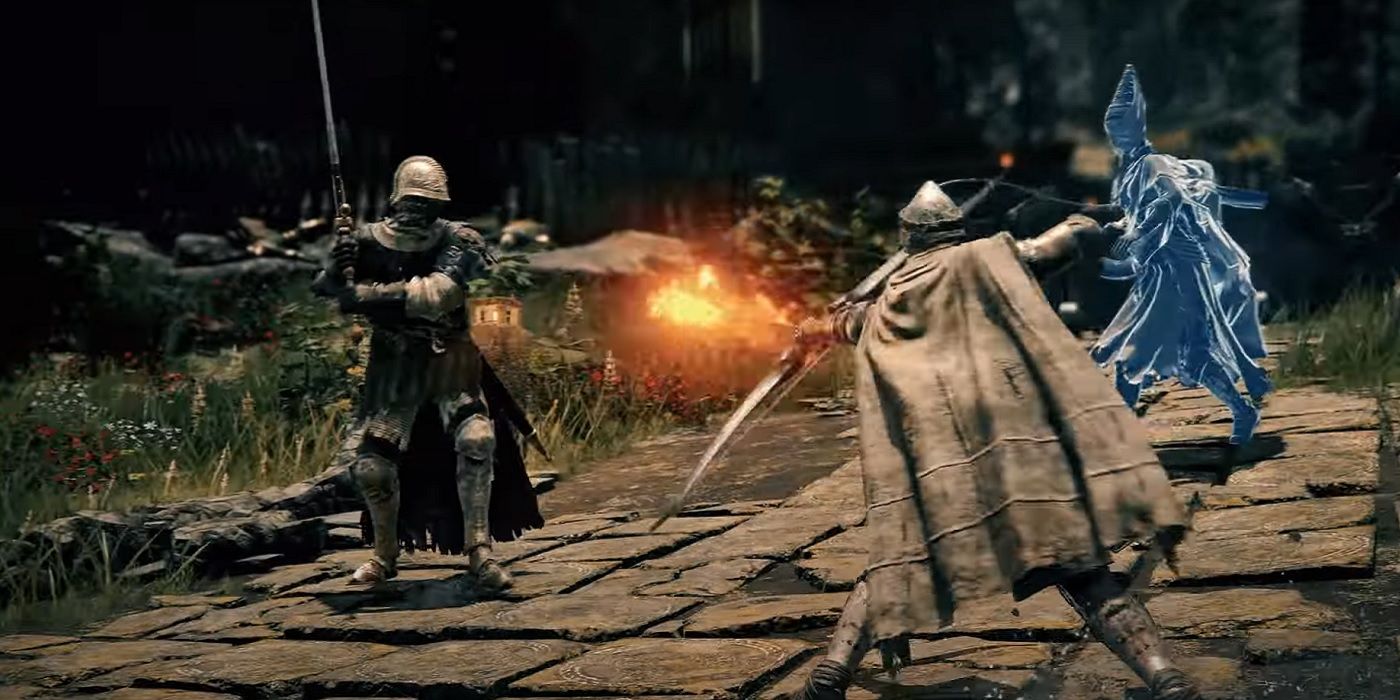
Stunning or staggering a boss can give you a crucial opening to deal damage, or a crucial opening to drink and heal up. Many of them seem designed around this too, given that building up stance breaking on them has generally been fairly easy on many bosses I've fought, even without a melee-oriented build. Characters using heavy two-handed weapons with colossal swords like Elden Ring's Zweihander will potentially have an easier time stance breaking some enemies, but bandits using headshot arrows and sorcerers using crystal burst on enemy's heads can have the same potent effect.
There's no single way to approach combat in Elden Ring. Learning the idiosyncrasies of all of the game's different mechanics and tools in your repertoire will help you overcome the game's biggest challenges. I've done much of it through trial and error, and making notes as someone without access to guides, but it won't be long until the internet is flooded with tips to help you approach the game's various challenges. Still, I'd argue that discovering the tactics for yourself can be incredibly satisfying too. And hey, you can always summon a friend in jolly co-operation in Elden Ring too.
If you're still unsure, try Dark Souls: Remastered first
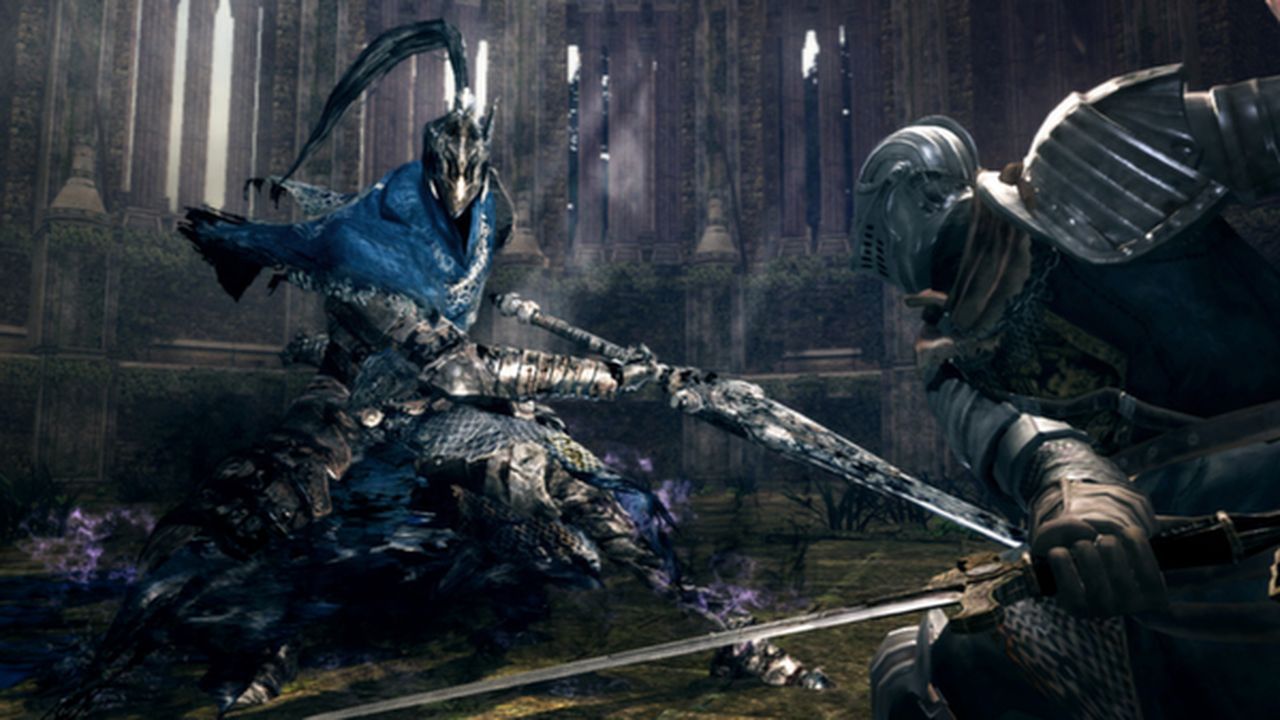
If you look at Elden Ring and think its bleak world is absolutely something you want to experience, but feel too intimidated by the difficulty, do what I did: play Dark Souls: Remastered first.
Elden Ring isn't hard for the sake of it. It actively wants you to win.
While Elden Ring mechanically shares more in common with Dark Souls 3, I think DS1 is potentially a more forgiving starting point. Dark Souls is a decade old, but in my opinion, the Remastered version holds up incredibly well by modern standards. What makes me recommend Dark Souls over Elden Ring for a newcomer to the series is two-fold. A: It's cheaper and often on sale, so if you can't grab a refund for whatever reason, you haven't wasted your money. B: There's so much guide content out there given the game's age that every time you get stuck, it's easy to find a guide, or information on how best to proceed. There are maps detailing all the best items. There are amazing websites like FextraLife dedicated to helping you get through Dark Souls and other similar games. YouTuber VaatiVidya is also a must-subscribe channel for anyone who is into, or getting into FromSoft souls games. His amazing videos have been a huge part of my journey into this genre.
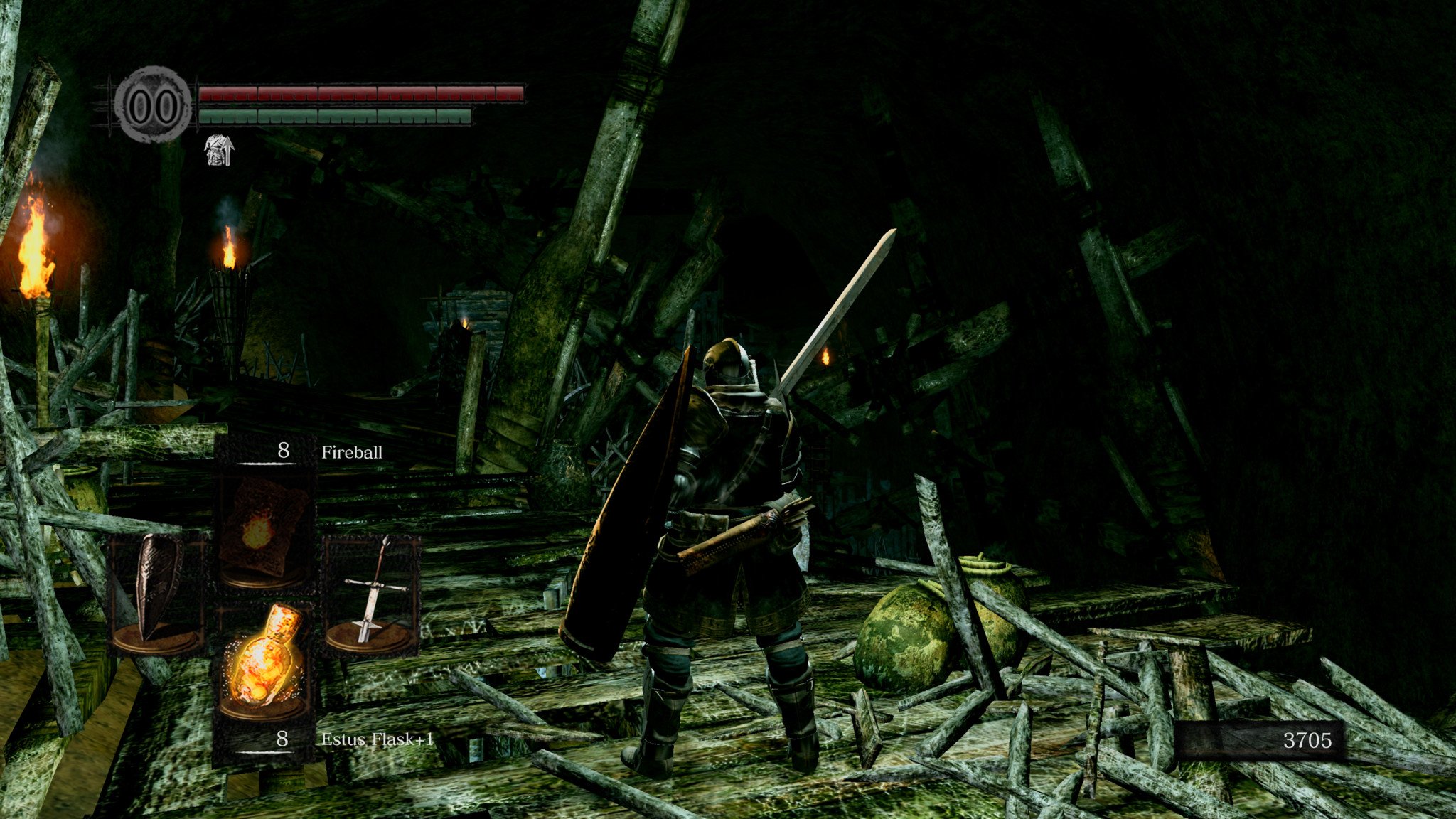
If you can get to grips with Dark Souls: Remastered, using guides, you may find you end up absolutely loving the formula and challenge as I have come to. There's something absolutely magical about peeling away at the layers of a boss fight's complexity, and finally felling them in battle. Dark Souls: Remastered helped ease me into this genre, with help and advice from friends and the web. I've fallen in love with it in a way I haven't fallen in love with a game in years. And I'm not a super Pr0 gam3r. I'm very average at best.
While skillz and reaction speed certainly help speed up the game, average players like myself can still find joy through patience, thoughtful study, and trial and error. These games are wholly fair, and give you the tools you need to overcome any challenge in these games. They don't want you to fail, they don't want to punish you. Elden Ring isn't hard for the sake of it. It actively wants you to win — but unlike most modern games — it simply wants to amplify the sense that you earned it. There's no better feeling in all of gaming.
If you have any questions, feel free to drop them in the comments, and be sure to peruse the mountain of other Elden Ring guides we're putting out to help you get started.

Jez Corden is the Executive Editor at Windows Central, focusing primarily on all things Xbox and gaming. Jez is known for breaking exclusive news and analysis as relates to the Microsoft ecosystem — while being powered by tea. Follow on X.com/JezCorden and tune in to the XB2 Podcast, all about, you guessed it, Xbox!
